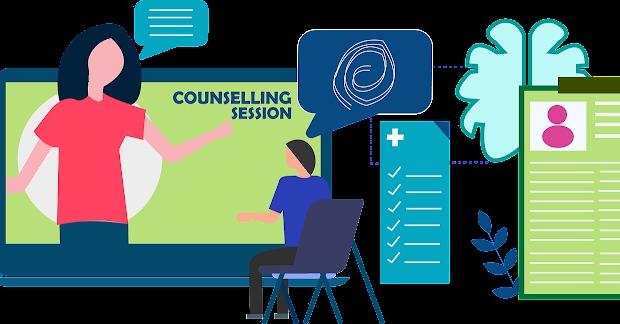School counselors play an important role in guiding the students through important phases of their life. If you wish to become a school counselor, then you need to realize the responsibility you have towards the children.
As a counselor, you can help them navigate the challenges of adolescence, and prepare for life beyond school. Being a counselor requires you to have patience, compassion, and expertise to help your students overcome obstacles and succeed.
Becoming a counselor is not easy but it is an extremely rewarding career. If you want to start on your journey, then start by getting the right education. Look for a well-known counseling careers university to get your bachelor’s degree.
Here are some traits that every school counselor must possess to make a positive impact on students’ lives and excel in their role.
Show Empathy and Compassion
One of the most crucial traits for a school counselor is empathy and compassion. Students often come to them seeking guidance during challenging times. By showing genuine empathy, you can create a safe space where students feel heard, understood, and supported.
Compassion allows you to respond sensitively to students’ needs and concerns, helping them navigate academic, personal, or social issues with care and understanding.
Good Listener
Active listening is an essential skill that enables school counselors to truly understand their students’ experiences. By actively engaging in conversations, you can demonstrate your willingness to listen without judgment. It’s important to give undivided attention, maintain eye contact, and provide verbal and nonverbal cues to show your genuine interest.
Good listening skills will help you gather important information, identify underlying problems, and offer relevant solutions tailored to each student’s unique circumstances.
Being Trustworthy
Building trust is fundamental for a successful counselor-student relationship. Students need to feel confident that their counselor will maintain confidentiality and act in their best interests. You can cultivate trustworthiness through consistent and ethical behavior.
As a counselor, you must uphold strict confidentiality standards and ensure students feel comfortable sharing sensitive information without fear of judgment or breach of privacy. By establishing trust, you can create a foundation for open communication, allowing students to seek guidance without reservation.
Cultural Competence
In today’s diverse educational landscape, school counselors must possess cultural competence to effectively support students from various backgrounds. Cultural competence involves understanding and appreciating the values, beliefs, and experiences of different cultures.
This way you can recognize and respect individual differences and adapt to their approaches accordingly. By embracing diversity, you can provide inclusive support that acknowledges the unique challenges faced by students from different cultural, ethnic, or socioeconomic backgrounds.
Sense of Humor
As a counselor, you might have to sit through some uncomfortable and even traumatic stories that students tell you. So, it’s alright for both the counselors and students to laugh along the way to make the situation a lot lighter. It is important to consider the timing when it happens but knowing how to form a relational connection with someone to the point of developing a sense of humor is a valuable skill.
In a therapeutic environment, humor and understanding the other person are the two most treasured skills that you must possess to become a good student counselor.
Social Interaction
You will need to interact with many individuals throughout your career. Besides students, you will need to collaborate with teachers, administrators, and social workers to fulfill your role. Working closely together with teachers, you can help create a comfortable environment for students to study and grow in.
This career choice is ideal for people who are outgoing and enjoy offering guidance. If you feel like you are not good at communicating with others, then you can start by building strong communication skills. You need to interact with your students in a way that will help them open up and talk about their problems without any hesitation.
Problem-Solving Skills
School counselors are often faced with complex challenges that require effective problem-solving skills. As a counselor, you must analyze situations, gather relevant information, and develop practical strategies to help students overcome obstacles.
By thinking critically and creatively, you can identify solutions and guide students toward making informed decisions. You need to have strong problem-solving skills to address academic struggles, conflicts with peers, career planning, and other issues students may encounter during their educational journey.
It’s best to collaborate with the administration to help your students clear their doubts regarding their career choice.
Flexibility and Adaptability
Educational environments are dynamic, and school counselors must be flexible and adaptable to meet the changing needs of their students. You must be open to new ideas, approaches, and strategies to ensure their guidance remains relevant and effective.
Flexibility allows you to adjust their methods based on individual student requirements, shifting priorities, or emerging issues. By staying adaptable, you can provide timely and appropriate support, fostering resilience and growth among your students.

